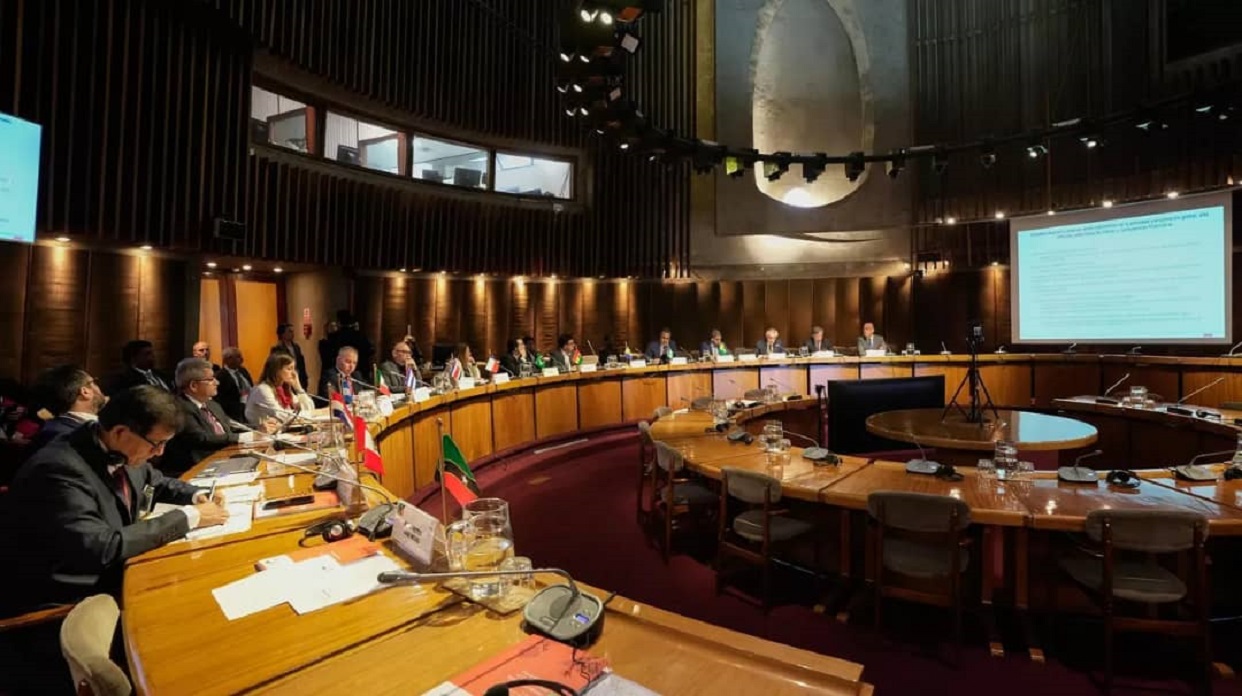Central America
Costa Rica’s Health System Could Collapse in October
In September, Costa Rica has experienced a constant rise in the number of Coronavirus cases. Therefore, the authorities foresee a saturation of the ICU. They believe that it could happen at the beginning of next month. Yesterday 1,087 new cases and 15 deaths were reported in the country.
Alexander Solís, president of the National Emergency Commission, said that the country is in a “critical stage.” He also said that “there might not be enough beds available in intensive–care units between October 5th and 9th.”
He emphasized that this had nothing to do with creating fear. “We can solve this with our behavior; we are the ones who have to take care of ourselves,” he added.
Since the beginning of the month, the country has experienced a rise in positive cases with an average of 1,000 per day. In addition to a gradual increase in hospital admissions, in regular wards and in intensive–care units.
Central America
Trump Administration Asks Supreme Court to Block Return of Deported Salvadoran

The Trump administration on Monday asked the U.S. Supreme Court to block a lower court order requiring the return of a Salvadoran migrant who was mistakenly sent to a maximum-security prison in El Salvador, despite having legal protection from deportation.
The U.S. government has until Monday to bring Kilmer Armado Ábrego García back to the United States, as ordered by Judge Paula Xinis in a Maryland court.
According to The Washington Post, the administration argues it lacks authority to comply because Ábrego García is currently in Salvadoran custody.
The U.S. had appealed Judge Xinis’ ruling to the Fourth Circuit Court of Appeals, but the court declined to act immediately—prompting the administration to take the case to the Supreme Court. In its filing, the government stated that “the Constitution entrusts the President, not federal district courts, with the conduct of foreign diplomacy and the protection of the nation from foreign terrorists, including through deportation.”
Ábrego García, a resident of Prince George’s County, Maryland, and married to a U.S. citizen, came under scrutiny in 2019 after an informant claimed he was a member of the MS-13 gang (Mara Salvatrucha).
Although he was initially slated for deportation, a judge later granted him a stay of removal after he requested asylum, according to the lawsuit.
Nevertheless, U.S. Immigration and Customs Enforcement (ICE) detained him on March 12, claiming his status had changed, and sent him to a detention center in Texas.
Central America
Honduras Hosts CELAC Summit Amid Regional Concern Over U.S. Deportations

Honduras began welcoming international delegations on Monday for the IX Summit of the Community of Latin American and Caribbean States (CELAC), an event marked by the presence of several left-leaning leaders.
The summit of heads of state will take place in Tegucigalpa at the headquarters of the Central Bank of Honduras, with 11 presidents confirmed so far out of the 33 member nations of CELAC.
Among those attending are Brazilian President Luiz Inácio Lula da Silva; Gustavo Petro of Colombia; Miguel Díaz-Canel of Cuba; Luis Arce of Bolivia; Yamandú Orsi of Uruguay; Bernardo Arévalo of Guatemala; and Mexico’s Claudia Sheinbaum.
The multilateral meeting comes at a time when Latin American countries remain concerned over mass deportations being carried out by the United States.
Central America
Mulino and Orsi Highlight Shared Vision After Panama Joins Mercosur as Associate State

The Presidents of Panama, José Raúl Mulino, and Uruguay, Yamandú Orsi, highlighted on Monday the path of integration both countries have undertaken in areas such as trade and the defense of democracy, following a meeting held at the Panamanian government headquarters.
In a brief statement to the press, both leaders emphasized that Panama and Uruguay share many values and are working together across different sectors. They also underlined a renewed connection following Panama’s accession last December to the Southern Common Market (Mercosur) as an Associated State.
“Panama has begun a new era of looking southward, seeking opportunities not only for work, business, and friendship, but also for regional integration in a positive sense. Today, I believe we have taken a decisive step in that direction,” said President Mulino.
The Panamanian leader stressed that his country and Uruguay “have much in common” and share “important values in terms of democracy, respect for institutions, and the rule of law—principles that must always be strengthened, no matter how much effort it takes.”
-

 Internacionales2 days ago
Internacionales2 days agoErik Prince Backs Ecuador’s Daniel Noboa in Fight Against Crime and “Narcoterrorism”
-

 Central America4 days ago
Central America4 days agoPanama’s former president Martinelli claims political enemies tried to kill him
-

 Central America2 days ago
Central America2 days agoGuatemala’s Legal Chief Shot Dead in Parking Lot: Investigation Underway
-

 International4 days ago
International4 days agoJavier Milei vows to work ‘side by side’ with the U.S. on trade rules
-

 Central America14 hours ago
Central America14 hours agoHonduras Hosts CELAC Summit Amid Regional Concern Over U.S. Deportations
-

 International14 hours ago
International14 hours agoTeachers in Southern Mexico Bring Education to Stranded Migrant Children
-

 Central America14 hours ago
Central America14 hours agoMulino and Orsi Highlight Shared Vision After Panama Joins Mercosur as Associate State
-

 Central America13 hours ago
Central America13 hours agoTrump Administration Asks Supreme Court to Block Return of Deported Salvadoran















